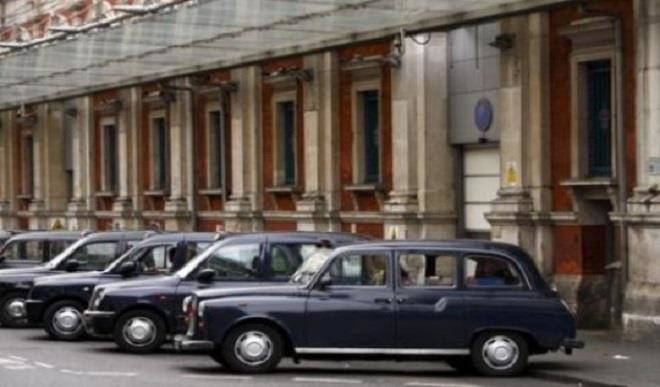An endangered species: London”s loquacious black cab drivers
Sitting in a room full of maps, Paul Defendi and Tommy Bartram ask each other over and over again the quickest way from A to B. Trance-like, they recite the names of streets and check the length of routes with a piece of string. The pair are students at London’s Knowledge Point, where they’re studying […]


Sitting in a room full of maps, Paul Defendi and Tommy Bartram ask each other over and over again the quickest way from A to B.
Trance-like, they recite the names of streets and check the length of routes with a piece of string.
The pair are students at London’s Knowledge Point, where they’re studying to get their black cab driver licences, regarded as the hardest test of its kind in the world.
Black cabs belong to the fabric of London as much as red double-decker buses, Big Ben and the Tower of London.
Built taller than normal cars, at around 1.8 metres, they provide a comfortable ride even for the largest of customers; originally they were supposed to accommodate gentlemen with tall hats.
The current model, the TX4, is 4.5 metres long and usually black.
Almost as famous as the cabs themselves are their drivers, legendary for "The Knowledge" – their encyclopaedic familiarity with London’s warren-like streets.
The "cabbies" have to learn 320 basic routes, including all of the 25,000 streets contained within them and the around 20,000 landmarks and places of public interest within a 10-kilometre radius of Charing Cross in central London.
Black cab students spend three hours every day on mopeds learning the routes off by heart. Sat navs are strictly forbidden.
The system itself has been in place since 1950, while Knowledge Point was founded in 1985 and is the oldest black cab driver school in the city.
The average student needs thee years until they’re ready to take the oral test for the licence.
"Seventy per cent (of the students) drop out before the exam," says teacher Peter Allen, who took the test after just two years of training and has been a cabbie since 2008.
There are around 25,000 registered taxi drivers in London, 80 per cent of whom are men, and around 6,000 of the cult taxis. Every year, around 6,500 new students register.
"It’s actually half of what it used to be but the numbers are starting to creep up now. It’s a cycle, things go up and down over the years," says Allen.
Uber has been a particular problem, and central London has seen repeated protests by black cab drivers against the new, cheaper ride-sharing service.
"A year ago there was contemplation of closing the company because the cost of renting business property in London is just too expensive," says Allen.
But the London Taxi Company, which makes the black cabs, stepped in and offered Knowledge Point rent-free premises at its London dealership, not far from the school’s original home in Islington, north London.
The fate of black cab drivers has also drawn the attention of London Mayor Sadiq Khan, who at the end of last year promised new taxi ranks, grants for drivers who traded their cars in for less polluting models and their own app.
But Allen says that’s not enough.
"The trouble we have as a group is that Transport for London are licensing 600 private hire drivers every week," he says.
In particular, he says, the measure introduced by Khan, which will require drivers to take an English test from April and which will mostly affect foreign-born Uber drivers, does not go far enough.
"We need more regulation," he says.
But Uber’s business model – with its easy-to-use app, automatic card payments after the journey and cheap prices – have won it a lot of customers. So are there ideas that cabbies could copy, instead of relying on more regulation?
"There are taxi apps such as Gett or Hailo; every taxi driver has to have a credit card facility in their taxi," answers Allen.
"So it’s all there. However what seems to be the case is that the general public aren’t aware. So what we could learn is the publicity side."
Defendi, 36, und Bartram, 31, agree.
"There’s no nice competition there, that’s the unfair part," says Defendi. "It’s immoral. If Uber paid the workers minimum wage, and more taxes, it would be more expensive."
Both have relatives who were cabbies and they want the independence that the job offers. They’re also proud of their learning and they’re determined to fight for the black cab tradition – but not before they pass their exams. (DPA)
